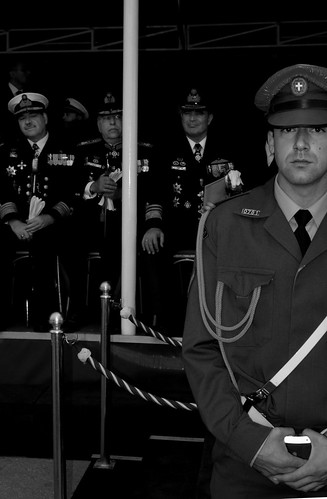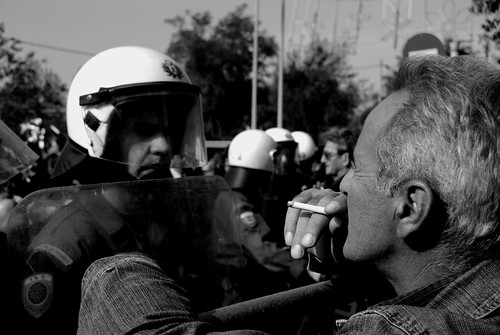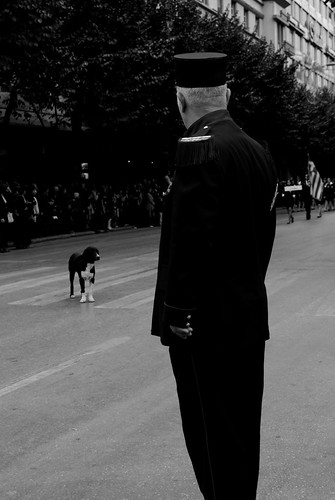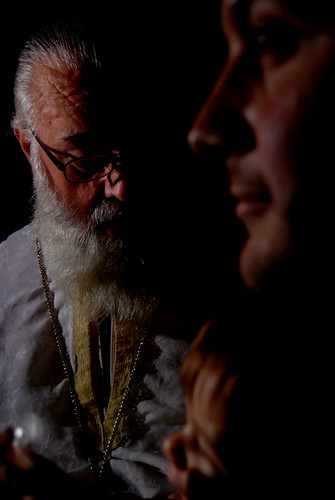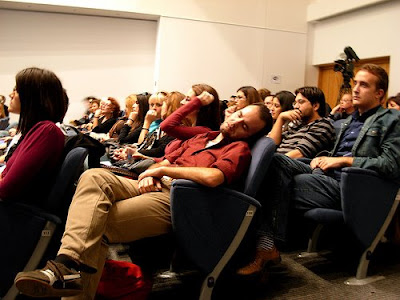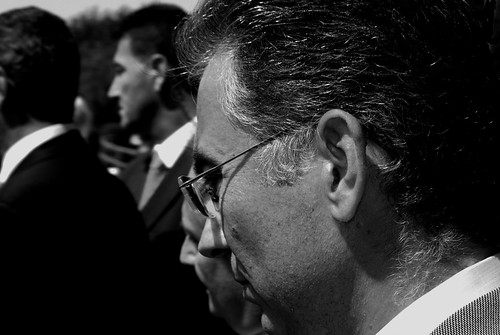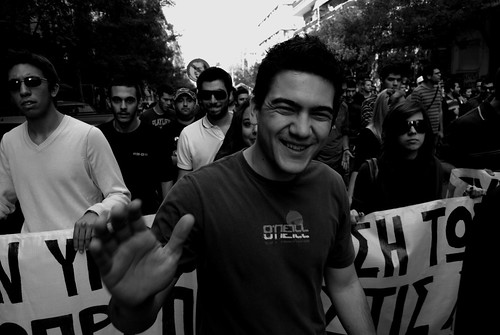It seems that the conference on Monday here in Thessaloniki on
participatory journalism and blogs has sparked off a mini-war between bloggers and the more the traditional media’s supporters.
I think that inadvertently the conference organisers have given us a text book example of how the new channels for collecting and desseminating news can run rings around older forms not just in terms of speed of response but in quality of reporting.
The two day event which started in Thessaloniki on Monday and moved to Athens on Tuesday was billed as a discussion on the influence of new media on old media and vice versa. Present were member of the Greek media establishment and academics from the
Journalism and Mass Media department of the Aristotelion university of Thessaloniki as well as bloggers from the city.
So far, so good. The event was also to be webcast live and those following at home were invited to comment and send in questions to the panel.
However, the reality of the situation proved to be a mite different. Technical delays meant that the first panel started an hour and a half late and that the much vaunted wi-fi coverage proved as elusive as it was erratic. That alone would have been unfortunate but the problems with basics such as microphones, projection screens, lighting etc. meant that quite soon the whole situation descended into farce.
To add insult to injury the lack of technical preparation which matched by the lack of knowledge shown by many of the academics and older journalists invited. Yet it was their voices that dominated the debate at many points. Apparently, bloggers are insecure, psychologically unbalanced, vindictive souls only too willing to be used as puppets of the CIA and other like minded organisations. We don’t check our sources, we say nasty things, we don’t write properly and we are deeply disrespectful of our “betters” in the media. Well, at least that is something I agree with.
The first and last panel discussions were often little more than diatribes aimed at nasty bloggers (who by the way weren’t invited). Those who did turn up to this luddite slug fest spent the day wondering whether to laugh or cry at the level of discussion. Later we did decided to both and blog about it.
To say the response from those bloggers who followed the debate either on the internet or on the spot was scathing would be an understatement. They quickly and mercilessly dissected the thoughts, ideas and vanities of those taking part.
On the other hand the other side in this particular turf war took their time about responding to these comments. They ate in their fancy restaurants and patted themselves on the back for being so bold as I guess they had not bothered to follow the debate on the net. As a result the speed and vehermence of the criticisms must have come as a shock.
I think that fact that most of those present were a captive audience of journalism students, not about to upset their future grade point average with untoward criticisms lulled the academics into a false sense of security.
Slow they may have been, but they did get the message. This post on the official conference blog in Greek entitled 48 hours After (lovely title, just about sums up what they don’t get about instant access and response) in which they or one of their minions most probably, decried the awful way in which the bloggers wrote about the event and patted themselves on the back for being so very up to date.
Pleaseeeeeee the 90’s are over. They even had the nerve to say that the event was the culmination of five months preparation. Five months!!!!!! Please, not so loud people may hear you.
I looked at the 20 odd comments on the post and just one was critical. Most seemed little more that congratulations from the students to those organising the event. I actually posted a comment but mysteriously my thoughts on the conference didn’t make it pass the censors.
Actually, I think that attitude was indicative of the whole event. There was little attempt to reach out and engage in any meaningful dialogue. I don’t think that people had the chance to ask more than a dozen questions during whole event. Indeed the only meaningful exchange of ideas happened at the very end when guest speaker,
Dan Gillmor chatted with the few students who didn’t scurry off to get their attendance certificates and us bloggers.
Instead this was a grandstanding event designed by those at the university to show how hip and web 2.0 they were. Unfortunately. the whole thing blew up in their faces when they realised that they didn’t control the direction of the debate outside the conference and that their ignorance of the subject would be exposed to a wider audience.








